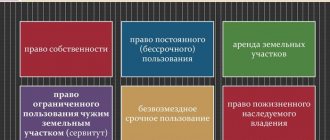Concept and types of property
The idea of it has been developing in science for thousands of years, and it has become, first of all, an official object of legal nature, as well as philosophy. For a long time, property as a special social relationship was the direct subject of civil law, but with the further evolution of social production it becomes, in addition to legal, also a fundamental economic category.
The emergence of states contributed to the emergence of state property. In this regard, a variety of forms of this economic category has formed: personal, family, clan, state.
Intertribal, and subsequently interstate wars, inheritance and seizure of wealth gave rise to such inhumane forms of property as serfdom, slavery, the objects of which are people.
During feudalism, the existing subsistence economy was closely connected with the feudal lord through ownership of the land, and through the tools of its cultivation, and through livestock. During the period of capitalism, the means of production are appropriated by the owners of capital. The private form of property gradually begins to flourish, and the relationship between its objects and subjects is increasingly divided into disposal, possession and use. Subsequently it changes. A joint stock form of ownership appears.
In addition to ownership of land, natural resources, buildings and structures, equipment and other real estate, the role of ownership of jewelry and gold, securities, and cash is being strengthened.
Property relationship is the property relationship of the subject (the owner - the active side of these relationships, owning its objects, as well as disposing and using them) with an object (objects of nature, energies, property, intellectual and spiritual values, substances, information - the passive side of the relationship in question). Typically, the object itself is simply called property.
A broader interpretation of this economic category was provided by various economists, who proceeded from various types of its static (dynamic) basis, the main manifestations in daily practice, historical and class character, and so on.
In general, property is the relationship between certain economic agents regarding the appropriation of consumer goods and economic resources. Awareness of the essence of this concept leads to the need to consider it in the framework of the relationship with other economic relations of society, such as production, distribution, subsequent exchange and consumption of existing goods. It is this that most fully reflects the socio-economic character of the current era.
All existing economic systems can be classified based on their relationship to property in relation to the means of production. It is customary to distinguish the following types of property, which are characterized by various methods of combining the producer with the means of production; distribution of the received social product among members of society:
- primitive communal;
- feudal-serfdom;
- slaveholding;
- capitalist.
What are the types of property rights?
Contents In the articles of the Civil Code of the Russian Federation, although the term “property rights” is mentioned (Article 128 of the Civil Code of the Russian Federation), it is not disclosed in detail anywhere. For example, as the subject of obligatory relations, “property rights”, as rights of claim, are mentioned in Art.
572 of the Civil Code of the Russian Federation (donation agreement) and Art. 336 of the Civil Code of the Russian Federation (subject of pledge). The Constitutional Court of the Russian Federation in Resolution No. 9-P dated 06.06.2000 explained that everyone has the right to own property, own, use and dispose of it both individually and jointly with other persons (Article 35 of the Constitution of the Russian Federation), everyone has the right to free use of one’s property for business and other activities (Art.
34 of the Constitution of the Russian Federation). The implementation of property rights is carried out on the basis of general legal principles of inviolability of property and freedom of contract, presupposing equality, autonomy of will and property independence of participants in civil law relations, and the inadmissibility of arbitrary interference by anyone in private affairs.
The concept of “property” in its constitutional and legal sense covers, in particular, real rights and rights of claim belonging to creditors (Resolution of the Constitutional Court of the Russian Federation of May 16, 2000 No. 8-P).
Within the meaning of these provisions, the term “property” covers any property associated with the implementation of the right of private and other forms of ownership, including property rights, including the rights of possession, use and disposal of property received from the owner. In the resolution of the Plenum of the Supreme Court of the Russian Federation dated July 9, 2013.
Typology of the category under consideration
Her relationships improved with the development of society. In this regard, a wide variety of forms and types of property appeared. The first are specific characteristics of the ownership of the products of social production and material factors by its main subjects, and the second are qualitatively special stages in the evolution of property. How exactly are the forms and types of property interconnected? This is shown in the table below.
| Forms of ownership | Types of property |
| Private State Collective | Slave-owning (antique, Asian) Capitalist Primitive communal Feudal Socialist |
They are directly dependent and predetermined by the specific historical conditions of life of society. At the same time, types of property are determined by the existence of a certain socio-economic system. This classification is called formational, but does not entirely coincide with it. As has already become clear, the above types of property correspond to its various forms. Thus, private property - products of production and its means - belongs to individual individuals. Collective is the unity of property and labor (collective), or more precisely, their special state, within which an individual member of the collective is the owner of the resulting products and means of production.
Public property is the ownership of various types of objects by the entire society (shared property). This form most often acts as a state form, which can only arise as a result of:
- construction of facilities sponsored by the state budget;
- nationalization (moving property from private to state ownership);
- acquisition by the state of a pact of shares (controlling) of private firms.
What are the types of property rights?
Although the term “property rights” is mentioned in the articles of the Civil Code of the Russian Federation (Article 128 of the Civil Code of the Russian Federation), it is not disclosed in detail anywhere.
For example, as the subject of obligatory relations, “property rights”, as rights of claim, are mentioned in Art.
572 of the Civil Code of the Russian Federation (donation agreement) and Art.
336 of the Civil Code of the Russian Federation (subject of pledge). The Constitutional Court of the Russian Federation in Resolution No. 9-P dated 06.06.2000 explained that everyone has the right to own property, own, use and dispose of it, both individually and jointly with other persons (Art.
35 of the Constitution of the Russian Federation), everyone has the right to free use of their property for business and other activities (Article 34 of the Constitution of the Russian Federation). The implementation of property rights is carried out on the basis of general legal principles of inviolability of property and freedom of contract, presupposing equality, autonomy of will and property independence of participants in civil law relations, and the inadmissibility of arbitrary interference by anyone in private affairs. Within the meaning of these provisions, the term “property” covers any property associated with the implementation of the right of private and other forms of ownership, including property rights, including the rights of possession, use and disposal of property received from the owner. In the resolution of the Plenum of the Supreme Court of the Russian Federation dated July 9, 2013.
N 24 “On judicial practice in cases of bribery and other corruption crimes” explains that property rights include both
Classification of forms of the concept under consideration
There are different types of property based on its forms and the nature of the subjects:
1. Depending on the form of assignment:
- individual (labor economy, personal property, personal subsidiary plot, individual labor activity);
- state (municipal, national, entities on state territory);
- collective (cooperatives, rental enterprises, joint-stock companies, collective enterprises, partnerships, associations, etc.).
2. Based on ownership:
- state (federal, municipal, republics and other entities on the territory of the state);
- private (citizens, legal entities: organizations, enterprises, associations);
- joint (common for organizations and enterprises).
The concept of property in Russian legislation
Property may also be of an intangible nature
What is covered by the term “property”? To do this, you must indicate Art. 128 of the Civil Code of the Russian Federation, which indicates the types of objects - things, cash, securities, other property.
Based on this, we see that there is no specific definition in the law; it is a collective concept that is distinguished by its heterogeneity and versatility. In the broadest sense, property is considered as a set of things and responsibilities that correspond to them.
There are quite a few articles in the Civil Code in which this concept appears, but there is no exact wording anywhere. In this regard, you need to understand several basic points regarding the definition of property:
- This is a system of material things and values that are at the disposal, use and possession of a person, that is, they are his property.
- This is a certain set of things that are aimed at obtaining material benefits from third parties - these are assets.
- Things, duties that primarily illustrate their bearer.
Intellectual property: concept, characteristics, types
It is a set of personal property and non-property rights (exclusive) to specific information on a specific material medium that has an unlimited number of copies, and intellectual property here is not the rights to copies, but the information itself.
Its signs are:
- Imposing restrictions on the validity period of the corresponding intellectual right, territories, replication (production volume), etc.
- Possibility of purchase and sale, rental, exchange for other types of property or gratuitous transfer, etc.
- Intangibility and intangibility (it cannot be identified or determined from the position of physical parameters).
- The meaninglessness of repeated reproduction (as opposed to material property).
- The specificity of the form of legal protection, which takes into account its significant feature and which is accessible to perception.
Types of intellectual property are as follows:
- Industrial property (utility models, inventions, prototypes, selection achievements, trademarks, etc.).
- Copyright (literary and artistic works, copyright, scientific works, databases and computer programs, works of art, etc.).
- Know-how (technological, technical, commercial, production, organizational and managerial, etc.).
- Related rights (radio, television programs, sound recordings, performing and directing activities, arrangements, etc.)
These are the main objects and types of intellectual property.
Types of objects of property rights
Based on turnover, these objects can be divided into:
- freely circulating;
- those in restricted circulation (chemicals, a number of medications, narcotic and psychotropic drugs, various types of weapons);
- prohibited for circulation (for example, nuclear weapons can only be in the national property of the Russian Federation).
Supporters of recognizing the possibility of the existence of ownership rights to any objects specified in Article 128 of the Civil Code divide them into:
- material - in other words, something that has a material shell (for example, property);
- intangible – without material content (for example, the results of mental work, water space).
Material objects can be living (for example, animals) and non-living (things, resources, etc.).
Features of the regime of individual objects of property rights
- Natural resources. The legislator established a presumption of their being in state ownership. Resources not specifically transferred to citizens and organizations are at the disposal of the country in whose territory they are located. However, they may be transferred for operation to other parties under the relevant legislation.
- Real estate objects. According to Article 130 of the Civil Code, these include land; building; allocated subsoil areas; some ships. In the case of these objects, registration in the state register is mandatory.
- Commercial establishment. Considered as a complex of property. It is recognized as real estate even if the named complex does not include rights to buildings or land (Article 132 of the Civil Code).
Land ownership: forms of ownership (use), types
It is customary to distinguish the following types of land ownership:
- Federal state property.
- State property of the constituent entities of the Russian Federation.
- Municipal (city).
- Private.
The owners of this factor of production can be both a legal entity and an individual. There are the following forms of land ownership (use):
- lifelong inheritance;
- unlimited use;
- right of easement (limited use);
- land ownership;
- rent
Property rights
Although the term “property rights” is mentioned in the articles of the Civil Code of the Russian Federation (Article 128 of the Civil Code of the Russian Federation), it is not disclosed in detail anywhere. For example, as the subject of obligatory relations, “property rights”, as rights of claim, are mentioned in Art.
572 of the Civil Code of the Russian Federation (donation agreement) and Art. 336 of the Civil Code of the Russian Federation (subject of pledge). The Constitutional Court of the Russian Federation in Resolution No. 9-P dated 06.06.2000 explained that everyone has the right to own property, own, use and dispose of it, both individually and jointly with other persons (Article 35 Constitution of the Russian Federation), everyone has the right to free use of their property for business and other activities (Art.
We recommend reading: Warranty specialist job responsibilities
34 of the Constitution of the Russian Federation). The implementation of property rights is carried out on the basis of general legal principles of inviolability of property and freedom of contract, presupposing equality, autonomy of will and property independence of participants in civil law relations, and the inadmissibility of arbitrary interference by anyone in private affairs.
The concept of “property” in its constitutional and legal sense covers, in particular, real rights and rights of claim belonging to creditors (Resolution of the Constitutional Court of the Russian Federation of May 16, 2000 No. 8-P). Within the meaning of these provisions, the term “property” covers any property associated with the implementation of private and other forms of property rights, including property rights, including the rights of ownership, use and disposal of property received from the owner. In the resolution of the Plenum of the Supreme Court of the Russian Federation dated July 9, 2013
Particular form of assignment to the factor of production under consideration
There are the following types of land ownership:
- Common property.
- Individual property of legal entities and individuals.
There are such types of common property as:
- general share (each owner knows his share in advance);
- general joint (shares of owners are not agreed upon in advance).
A legal entity, as well as an individual, can, if they wish, unite their land plots that are in their ownership, and subsequently use them as common joint (shared) ownership.
Types of real rights
This system is the broadest; therefore, it is often divided into two groups. This is the right of ownership (to use, dispose, own) and limited real rights that do not imply the process of ownership. Let's take a closer look at each category below.
Ownership
This is a systemic institution of law, which consists of many norms (articles of the Civil Code of the Russian Federation) and regulates social relations in matters of assigning an object to a certain person.
This right provides ample opportunity to use the object at the discretion and will of a person. That is, the owner can do any actions that do not contradict the law, regulations, and also do not violate the rights and freedoms of third parties.
In practice, it is further divided into groups. Private is a right that belongs either to a person or an organization, an individual entrepreneur. Public – property belongs to the state or municipality.
Private property: definition, types
This concept means that a person owns, manages and uses his property purely for personal purposes.
It is customary to distinguish the following types of private property:
- A person who works for himself owns the results of labor and the means of production (the owners were peasants, artisans and all those who live in our time by their labor).
- Sole ownership of the means of production and the products of labor of people working for the owner (in the past, the owners were landowners, slave owners, and currently small businessmen).
What are the types of property rights?
» Contents In the articles of the Civil Code of the Russian Federation, the term “property rights” is mentioned (Art.
128 of the Civil Code of the Russian Federation), but is not disclosed in detail anywhere. For example, as the subject of obligatory relations, “property rights”, as rights of claim, are mentioned in Art. 572 of the Civil Code of the Russian Federation (donation agreement) and Art.
336 of the Civil Code of the Russian Federation (subject of pledge). The Constitutional Court of the Russian Federation in its Resolution dated 06.06. 2000 No. 9-P explained that everyone has the right to own property, own, use and dispose of it, both individually and jointly with other persons (Art.
35 of the Constitution of the Russian Federation), everyone has the right to free use of their property for business and other activities (Article 34 of the Constitution of the Russian Federation). The implementation of property rights is carried out on the basis of general legal principles of inviolability of property and freedom of contract, presupposing equality, autonomy of will and property independence of participants in civil law relations, and the inadmissibility of arbitrary interference by anyone in private affairs.
The concept of “property” in its constitutional and legal sense covers, in particular, real rights and rights of claim belonging to creditors (Resolution of the Constitutional Court of the Russian Federation of May 16, 2000 No. 8-P). Within the meaning of these provisions, the term “property” covers any property associated with the implementation of the right of private and other forms of ownership, including property rights, including the rights of possession, use and disposal of property received from the owner. In the resolution of the Plenum of the Supreme Court of the Russian Federation dated July 9, 2013.
Entrepreneurship: definition, forms
This is the process of forming a new economic benefit that has a special value (accepting moral, financial, social responsibility, as well as ultimately receiving a certain income, personal satisfaction from what has been achieved).
Thus, an entrepreneur implements property relations that are inherent in a market economy from the position of legal registration through organizational mechanisms of activity.
It can be carried out both in a collective form and in an individual one. Organizations as legal entities are of two types:
- commercial organizations (the goal is to make a profit);
- non-profit institutions (non-profit purposes).
There are the following types of enterprise ownership (organizational and legal forms):
- Business partnerships (full, limited).
- Production cooperatives, or artels.
- Business companies (open and closed joint stock companies, limited liability, with additional liability).
These are the main types of property ownership of organizations. It is important to consider this category from a legal point of view.
Property formation process
As a result of changes in legislation and the formation of the necessary conditions for determining the boundaries of individual ownership, the population’s attitude towards property has radically changed. Citizens of the Russian Federation can acquire individual housing by:
- privatization of real estate housing funds;
- registration of a purchase and sale transaction;
- purchasing housing from construction companies;
- received by inheritance or gift;
- acquisition of housing through participation in housing construction cooperatives and other similar organizations.
Read also: Entered into an inheritance, but did not register ownership
To determine the boundaries and extent of ownership, the following types of documents are used.
- Title documents - secure the private property right of a particular citizen in relation to certain property.
- Technical passport - issued by the BTI after carrying out a technical inventory and contains information about the inventory value of real estate.
- Certificate of ownership - issued by the BTI on the basis of a technical passport and a document confirming ownership.
The purchase and sale process must be confirmed by an appropriate written agreement. It is better that the data about the object of the transaction be reliable and accurate. The agreement is intended to determine the conditions for the transfer of the right to housing and can subsequently be used to protect the rights of the owner.
The seller undertakes to transfer the property for the agreed amount within the specified time frame under the specified conditions. State registration of the agreement is necessary for the agreement to enter into force. When transferring the object of the contract from the seller to the buyer, an act of acceptance and transfer of real estate is signed.
How is it possible to become a private owner in Russia?
In modern society, having your own home is a priority and common desire of almost every person. A similar trend arose in the 90s of the 20th century after the adoption of property laws allowing privatization. Residents of the Russian Federation had the opportunity to legitimize their private property rights through several types of ownership: individual ownership, shared ownership of an apartment, common shared ownership, common joint ownership of apartment. Until that moment, all real estate was state-owned. Public property was leased from the population. Real estate includes objects whose location cannot be changed, namely residential premises and land plots. The owner exercises his right of private property directly at the location of the property.
Each object has its own specific address.
To determine the owner of an object, the following types and forms of ownership of real estate are assumed:
- collective;
- private.
- state;
The difference is that in the state form the owner is the Russian Federation, as well as its subjects, in the second case - local government bodies, and the private form implies ownership of property by individuals and legal entities. Regardless of the form of ownership, each owner, in addition to the right, also has certain responsibilities in relation to the property.
State ownership has its own characteristics:
- independent determination by the state of the conditions for the use of state property.
- the state may even own property that has been withdrawn from circulation;
- only the state has the right to confiscate property from other owners;
We suggest you familiarize yourself with the age at which you can leave. The state and the constituent entities of the Russian Federation own real estate, which is necessary for the implementation of their functions. These can be buildings that house government bodies, the army, state-owned enterprises, as well as defense facilities, factories.
Federal highways are also considered state property. In the Russian Federation, these objects are not subject to privatization, since they are intended to protect the interests of the population and implement state goals. The right of private property is an absolute, legally protected right to certain property of a specific person.
The right of private property is an absolute, legally protected right to certain property of a specific person.
Without private property, the existence of a market economy is impossible. The legislation of the Russian Federation does not limit the permissible number of objects of ownership for each citizen, or the maximum or minimum value of property. Private real estate is subject to the right of inviolability. All property within the Russian Federation is subject to state registration. There are two main types of private property - individual and common.
Each in turn is divided into subspecies and has its own differences. The difference between them is how many people own property and how much of the housing belongs to each. The main forms of private property are:
- shared ownership of an apartment - used in the process of privatization of communal apartments, each owner has his own share of a certain size;
- general share - the shares of all residents are considered equal in the absence of other agreements in the privatization process;
- individual - the owner is one person, implemented when those living in the apartment completely renounce their right to private property;
- general joint - when inheriting housing at the same time by several persons, when purchasing it using joint funds.
Joint ownership arises in the event of privatization of real estate by spouses and family members.
Decisions regarding the disposal of property are made by all family members living together. If it becomes necessary for one of the owners to sell their own part of the common property, the property is transferred to shared ownership. When buying housing that is owned by several people, the purchase and sale agreement must be signed with everyone. Shared ownership involves each tenant owning a certain share of the apartment.
The size of the share is indicated in the purchase and sale agreement and depends on the material contribution of each person. The disposal of property is carried out with the consent of all owners.
When disagreements arise regarding the ownership of shared property, the general protection of interests takes place in court. Acquired with capital acquired jointly during marriage, real estate is considered the property of the spouses. The parts of each family member are considered equal. The disposal of housing occurs by mutual decision.
The parts of each family member are considered equal. The disposal of housing occurs by mutual decision.
When division of property is impossible by mutual consent, it is better to defend the right of private property in court. Protection of property rights is possible on the basis of the Constitution of the Russian Federation (Article 45).
- registration of a purchase and sale transaction;
- purchasing housing from construction companies;
- received by inheritance or gift;
- privatization of real estate housing funds;
- acquisition of housing through participation in housing construction cooperatives and other similar organizations.
To determine the boundaries and extent of ownership, the following types of documents are used.
- Technical passport - issued by the BTI after carrying out a technical inventory and contains information about the inventory value of real estate.
- Title documents - secure the private property right of a particular citizen in relation to certain property.
- Certificate of ownership - issued by the BTI on the basis of a technical passport and a document confirming ownership.
The purchase and sale process must be confirmed by an appropriate written agreement. It is better that the data about the object of the transaction be reliable and accurate.
The agreement is intended to determine the conditions for the transfer of the right to housing and in the future can be used to protect the rights of the owner. We suggest that you familiarize yourself with the Refusal to initiate a criminal case: grounds for refusal. The seller undertakes to transfer the property for the agreed amount within the specified time frame on the specified conditions. State registration of the agreement is necessary for the agreement to enter into force. When transferring the object of the contract from the seller to the buyer, an act of acceptance and transfer of real estate is signed.
- dormitory buildings;
- premises located in rural areas;
- real estate located in military camps;
- emergency real estate;
- service housing;
- property of stationary social protection institutions.
In accordance with the laws of the Russian Federation, owners can dispose of real estate at their discretion.
We recommend reading: Regional parental capital 70,000 rubles
The owner has the right to register any individual in the living space. The disadvantages of privatization are that such a right is subject to taxation (the amount of annual payments is determined depending on the value of the property), and utility payments are usually higher than in non-privatized apartments. (2 ratings, average 4 out of 5) Did you like the article? Share with friends: Search: © 2020 Real Estate in Law
What rights are there?
If you study the legal legislation, it becomes clear that property rights can be divided into the following types:
- real;
- obligatory;
- intellectual.
Real
The definition of real rights refers to such a concept as a thing. And this type of rights can be realized if, for example, you lease out the property. When such a transfer occurs, the right to dispose of the property remains with the owner, but the tenant can own and use the property.
This means that the owner of the property receives a restriction on use for exactly the period that the lease agreement will be valid. Another person will own and use it; the owner retains the right of disposal.
If during this time the ownership of the property passes to another person, this is not grounds for termination of the lease agreement.
If we talk about property values as objects of civil legal relations, then it is worth understanding that not only one person can be the owner. That is, ownership rights to a property may belong to several persons in different shares. This is primarily the joint property of the spouses, which was acquired by them during the official marriage.
It follows that real rights relate to property rights, being their integral part. Property rights, in turn, are of the following types:
- lifelong inheritance of the right to a land plot;
- unlimited use of a plot of land;
- easement;
- operational management;
- economic management.
Commitment
The next type of rights to property are rights of obligations.
They arise when damage to property is caused, based on the standards available in the law. That is, if the debtor has obligations to the creditor, he must fulfill them, in accordance with Article 307 of the Civil Code of the Russian Federation. In these legal relations, the parties to the obligations are the creditor and the debtor. When it comes to transferring property for temporary use under a lease agreement, the owner of the property has the right to demand from the person who is the tenant that all payments are made on time and that the property is handled carefully. In this case, the tenant will be responsible for the property that is in his possession for a certain period of time.
In this case, it turns out that some rights (real) give rise to the emergence of other legal relations (obligatory). They arise directly from the concluded agreement for the rental of property between the parties.
Intelligent
All legal relations that relate to intellectual property will be regulated by current legislation, namely part 4 of the Civil Code.
Intellectual rights include:
- a type of property right that is exclusive;
- individual non-property and other rights.
A citizen engaged in intellectual activity may acquire intellectual property as a result. This may include various inventions and other types of goods, works and services. In civil circulation, it will not be the intellectual objects themselves that will appear, but the rights to them directly.
The exclusive right will include:
- use in any way that does not contradict the law;
- disposal of the results of intellectual activity (this also provides for the transfer to other persons of the opportunity to use these results or to prohibit this action);
- protection from unlawful use of the results of intellectual activity.
It follows that when using an exclusive right, the copyright holder will exercise the property right to dispose and use the results of his intellectual activity. An exclusive right can be assigned to one author or to several at the same time.
If any controversial situations arise, citizens have the opportunity to resolve such conflicts regarding the recognition of property rights in court. To do this, you will need to collect evidence of the existence of rights to specific property and apply it to the court. Your rights and interests should always be protected.







